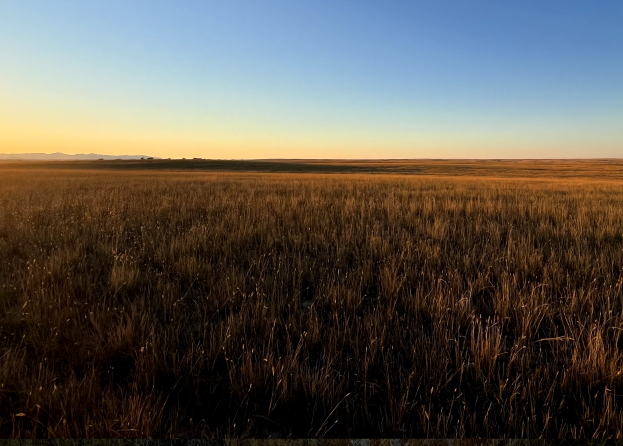Veseth Ranch Native Prairie Conservation
Partnering with The Veseth Cattle Company of Malta, Montana and The Nature Conservancy, The Climate Trust continues to expand its role as the go-to source of carbon funding for grassland conservation easements and ranch families. The Climate Trust pioneered the use of up-front funding for conservation easements in its own backyard with the Zumwalt Prairie project in Eastern Oregon, and is continuing its impact into the Great Plains.
The Veseth family arrived in the Malta area in 1886 and The Veseth Cattle Company has been a family-owned operation since 1942. Four generations now live and work on the ranch. From the beginning, the Veseth’s primary goal has been “to maintain living and working landscapes for future generations; create and maintain situations where people cohabit with wildlife in one environment.” The conservation easement funded by The Climate Trust and NRCS, and held by The Nature Conservancy, supports this goal by conserving 6,700 acres. The Veseth’s commitment to rangeland stewardship on working cattle operations has been acknowledged by the award of several state, regional, and national honors including the 2008 Environmental Stewardship Award from the Montana Stock Grower’s Association and the Region V Environmental Stewardship Award from the National Cattlemen’s Beef Association.
Since 2016, nearly 10 million acres of native grasslands have been converted to cropland across the Great Plains; less than 4% of tall grass prairie remains. From 2016 to 2020, this conversion was responsible for the release of 122 million mtC02e. Grassland conservation is critical because once lost, these habitats and their soil carbon cannot recover on a meaningful timescale. As ranchers face increasing financial pressure to convert their rangeland to cropland, carbon projects can provide the financing to protect working lands and ranch livelihoods via perpetual conservation easements. These projects are critical to protecting the abundant biodiversity and vast soil carbon stores of threatened grasslands. In fact, well-managed resources in Philips County–where the Veseths operate–make it home to 12 of the 13 endemic grassland birds of North America.
Family ranchers manage much of the Great Plains region and while conservation easements offer an effective tool for protecting their land, finding sufficient funding can be a daunting hurdle. The Climate Trust’s grassland carbon program addresses this obstacle head-on by providing up-front compensation to landowners for a conservation easement. Additionally, the accompanying carbon project generates an ongoing revenue stream. By working with land trusts like The Nature Conservancy to fund perpetual conservation easements, The Climate Trust provides carbon market access to smaller land owners helping them sustain their rural economies, and protect their property for future generations.
As the effects of our changing climate become increasingly evident, prevention of grassland conversion becomes profoundly important. While the Great Plains provide critical habitat and migratory corridors for over 300 species of birds and 95 species of animals, approximately 74% of all grassland-reliant species have threatened populations. Cropland conversion also poses a great danger to water quality and aquatic life. Sedimentation and nutrient-loading caused by tillage degrades water quality and the aquatic habitats of not only local rivers, but ultimately contributes to algal blooms in the Mississippi Delta and Gulf of Mexico threatening fish and wildlife habitats throughout.
The Climate Trust’s grassland carbon program helps landowners, like the Veseths, in the Great Plains and beyond permanently protect rangelands, sustainable rural economies, fish and wildlife habitat, and open space. Most importantly, this program helps stop the alarming loss of North America’s soil carbon stores.
Interested in supporting this project?


Our Mission & Vision
As a nonprofit organization, our investments are driven by climate impact and put landowners first. We work alongside our partners to develop and fund projects that support grassland conservation, reforestation, and improved forest management strategies.